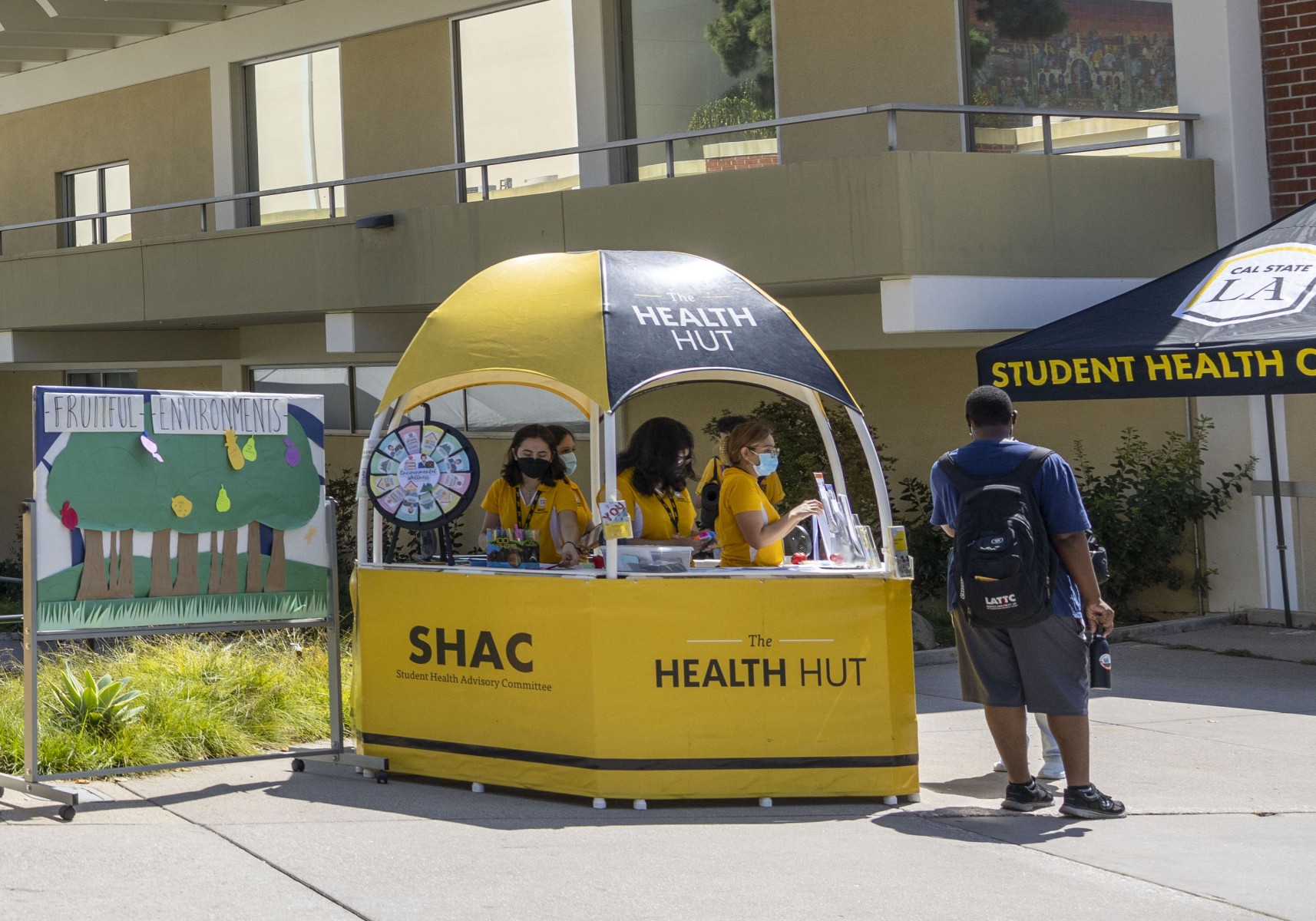The Student Health Advisory Committee (SHAC) Peer Health Educators (PHE) are students who educate their peers about health and wellness, advocate for policies to benefit student health on campus, and empower students to be agents of change within the campus community. Peer Health Educators undergo 40+ hours of specialized training in order to develop and conduct wellness outreach to their fellow students. They staff the in-person Health Hut and facilitated virtual Health Huts on Instagram.
PHE’s volunteered for one full academic year and served from fall 2021 to spring 2022. The cohort was comprised of 26 students.
The PHE program provides an opportunity for students to engage in experiential learning, connect with students from other majors, engage in advocacy, and develop mentoring relationships with professional staff. The knowledge and skills cultivated during their time as a PHE serve as a foundation for professional growth in any field.
The PHE program will:
- facilitate connections between students within and across different majors.
- foster mentoring relationships between professional staff and PHEs.
- focus on developing critical interpersonal and team-based skills that will continue to benefit students in any professional work environment they enter.
Motivations for Participation
Qualitative feedback completed toward the end of the academic year (April 2022) demonstrated that participation in the SHAC PHE program is largely motivated by a student's desire to help their peers on campus and make meaningful, ongoing connections with fellow students.
Impact of Group Dynamics
Group dynamics appear to play a large role in continuous service as a PHE. Promoting teamwork and providing socialization opportunities fostered a positive social environment that students wanted to continue engaging in. Similarly, building familiarity and professional connections with staff were also instrumental in the retention of PHEs.
Role of Social Connections
The open-ended responses from SHAC PHEs illustrate the important role of social connections in managing human capital within volunteer-based programming. Though qualitative data limits the conclusions that can be drawn regarding student experiences, it provides evidence that emphasizing the social and professional benefits to students is an effective recruitment and retention strategy.
Program Effectiveness
Employing the peer health educator model for health and wellness promotion programming continues to be a reliable and effective approach for the Student Health Center—benefiting both the greater campus community and the student volunteers who participate.
Given the positive feedback from students and previous success prior to the pandemic, the Student Health Center will continue using the peer health educator model to expand the reach of health promotion and education programming and provide an avenue for experiential learning. To support the expansion of peer health educator program, staff will implement the following measures in the 2022-2023 academic year:
- Re-institute robust quantitative assessments to better measure the impact volunteering as a Peer Health Educator has on a student.
- Formalize the continuing education and professional development of students in the PHE program.
- Continue to provide socialization and team activities for PHEs to engage in throughout the year.
